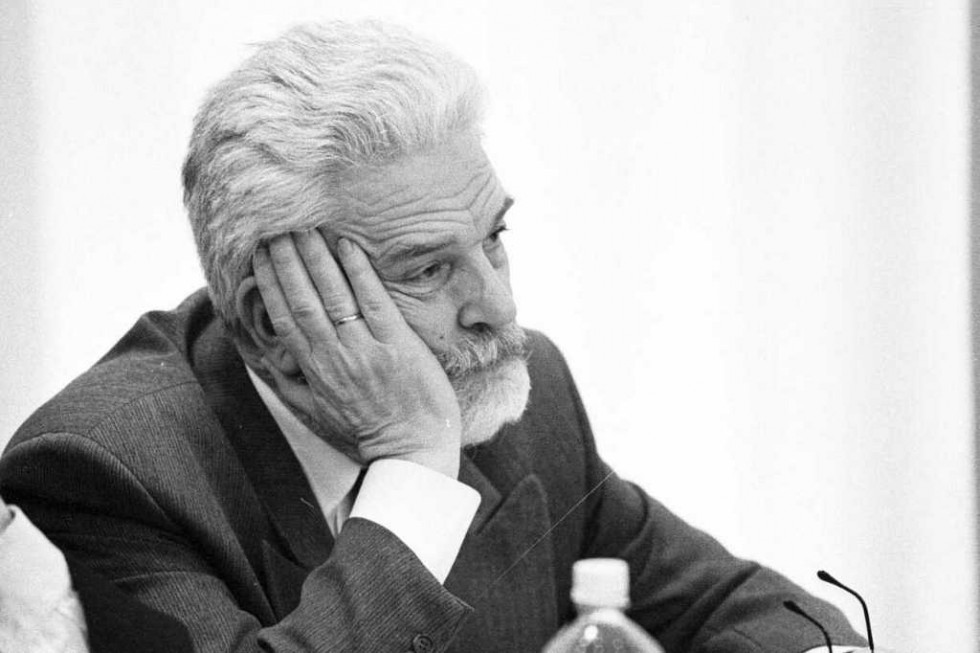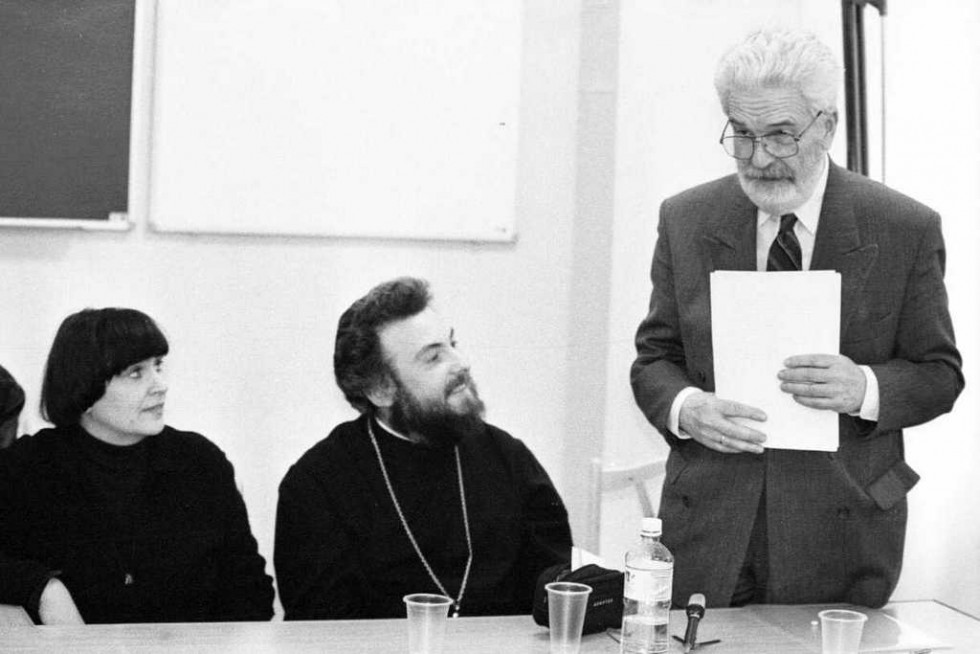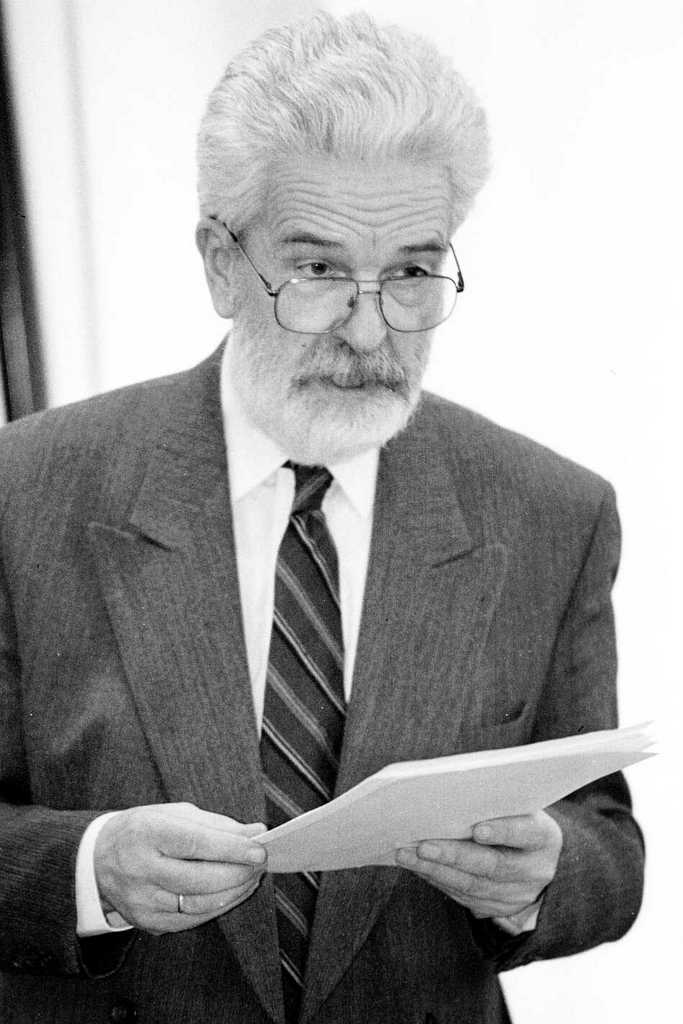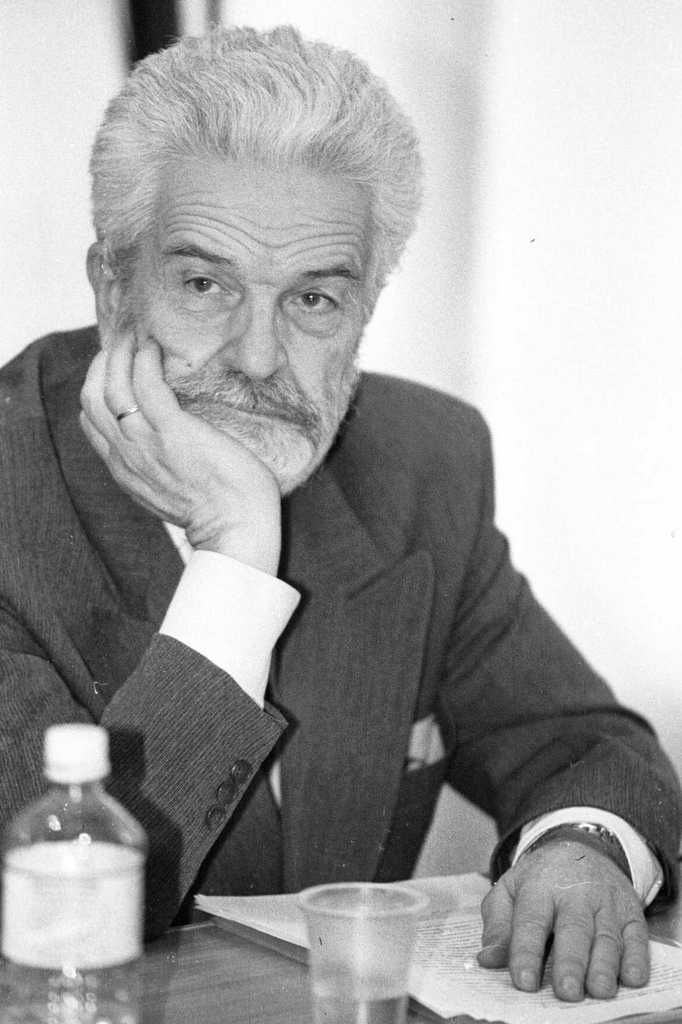Professor Dmitry Pospielovsky died on 12 September

Dmitry Pospielovsky in Zaostrovye (Arkhangelsk). Photo: Pavel Kononov
Dmitry Pospielovsky, great-grandson of the prominent Orthodox pedagogue K. D. Ushinsky, was born in1935 in the independent Republic of Poland (now Rivne region, Ukraine). In 1944 his family evacuated to the West and after 1945 settled in West Germany. In 1950’s the Pospielovsky family, like many other second-wave immigrants, went overseas. In Canada Dmitry Pospielovsky graduated from high school, finished university, received a MA degree. In 1967 he defended his doctoral thesis in the UK. Despite the broad geography of his life, Dmitry Pospielovsky always considered Russiahis motherland. This explains many of the facts of his biography and interests. For example, in 1953 Dmitry became a member of the Labor Alliance of Russian Solidarists in Germany, the most active and consistent anti-Soviet organisation of the second half of the last century. Dmitry Pospielovsky worked as representative of the Labor Alliance at the radio station ‘Free Russia’ broadcasting in the territory of the USSR. In the 1960's and early 1970's he was on the staff of the radio stations ‘BBC’ and ‘Svoboda’.
In 1972-1997 Professor Dmitry Pospielovsky taught Russian history at the University of Western Ontario (Canada). It was the time when he was researching actively the history of the Orthodox church in Russiain the 20th century. Professor Dmitry Pospielovsky was also one of the founders and active members of the parish of the Transfiguration (Ontario, Canada).
For the first time since the end of World War II, Dmitry Pospielovsky could come to Russia in 1988 as a member of the American delegation at the Church Council on the 1000th anniversary of the Christianisation of Russia. After those changes in the then Soviet Russia, he finally got the opportunity to personally participate in the works on the revival of church life, spiritual school and education. He taught church history at various Orthodox educational institutions – St. Andrew’s Biblical Theological Institute, Russian Orthodox University of St. John Theologian, the Smolensk and Minsk seminaries. In December 2001, Dmitry Pospielovsky came to Zaostrovye (Arkhangelsk) at the invitation of Fr. John Privalov, rector of the local Candlemas church, and worked in the parish archive. The result of his efforts was a book-chronicle about the sorrowful history of this church, its clergy and laity.
Professor Dmitry Pospielovsky wrote dozens of monographs, textbooks and articles, mostly on the history of the Orthodox Church in Russia, the USSR and the Russian expatriate community. His most famous work is the monograph ‘Russian Orthodox Church in the Twentieth Century’, published in 1995. In fact, it gives the first objective academic description of the history of the Orthodox Church in the Soviet Union. This monograph has been justly recognised as one of the best textbooks on the history of the ROC. In the preface to this work that might be considered the pinnacle of his writings, Professor Dimitry Pospielovsky wrote the words that could be the motto of everyone who serves to the church studies, of every Christian: ‘Presenting my humble work to the reader, I hope that it will do good for my motherland – Russia. If it helps, even to a small degree, in pursuit of truth and facts, no matter how bitter these might be sometimes. If it helps to dispel myths, both those that were spread under the old regime as well as those that come to replace them now under the label of "orthodoxy". Myths and lies, from wherever they may emerge, can provide grounds neither for all-people’s repentance, that was the most Holy Patriarch Tikhon’s will as a condition of the spiritual revival of Russia, nor moral healing of the nation.’
The last great work by Dmitry Pospielovsky was his monograph ‘Totalitarianism and Faith’. He considered a very acute and topical problem concerning the fact that the church on earth borrowed collectivist and totalitarian models from totalitarian state systems. It can be also seen in contemporary Russia.
Dmitry Pospielovsky’s activities were in a special way associated with St Philaret’s Institute. For many years he was a member of the Board of Trustees of St Philaret’s Institute, presented papers on conferences held by the Brotherhood, held lectures on the history of the Russian Orthodox Church, supported wholeheartedly the Institute and the Transfiguration Brotherhood in difficult situations. All the professors and students of the Institute who had the chance to personally communicate with this outstanding man will remember him with gratitude.
One can witness that Professor Dmitry Pospielovsky devoted all his life and works to the ministry to the Church,Russia and the Russian people's education.
May his memory be eternal!

Anna Shmaina-Velikanova, Fr. John Privalov, Dmitry Pospielovsky. Photo: Pavel Kononov

Dmitry Pospielovsky. Photo: Pavel Kononov

